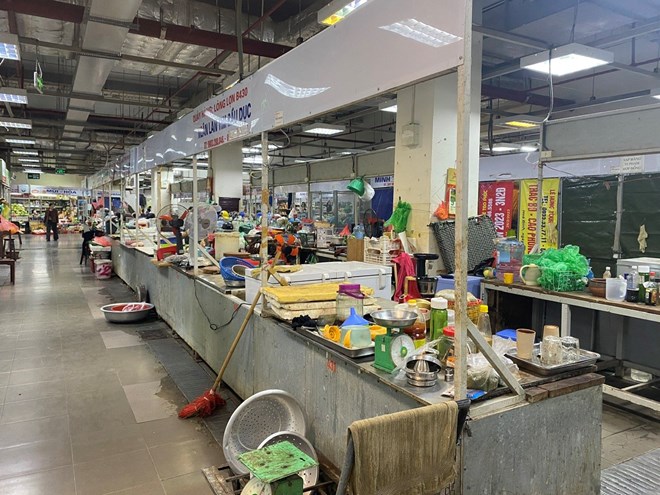
Only two or three opening days a month
Mrs. Lam is the oldest trader at Mo market (Hanoi), trying to stick with her business every day.
At the age of over 80, Ms. Lam still maintains her regular work - walking from her home to the market, setting up her stall alone at 8am and leaving at 5:30pm. But as the market's overall business situation gradually declined, the number of customers coming to buy at her stall also decreased, leading to a slump.
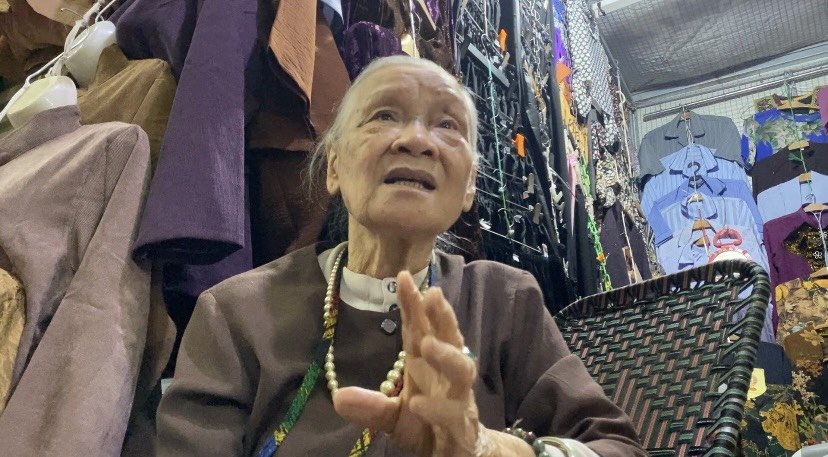
Speaking to reporters, Ms. Lam lamented: “It’s very slow, it’s difficult in general. Every morning I set out my goods and just lie there, reciting prayers and listening to the radio all day, no one buys or asks about me.
In one month, only a few people asked about the goods. The money I earned from selling them in one month was not enough for me to pay taxes, electricity, cleaning fees, etc. to the market management board. The imported goods could not be sold. After so many years, the same goods and designs were still there, but no one bought them.
Previously, Ms. Lam said, when the Mo market had not been rebuilt, business was very good, with steady income, enough for her to cover her living expenses. But since 2009, when the market was planned and renovated, the market moved to the basement of a shopping mall, and the business of the traders gradually slowed down. In particular, after 2 years of the pandemic and the development of online shopping, shoppers seem to no longer set foot in traditional markets, to stalls like Ms. Lam's or hundreds of other traders.
“Previously, the market had 1,300 households, but now there are only 300 households, and 8 out of 10 stalls are closed. The market is so empty of both sellers and buyers that one household has to spread out to sit at 4 or 5 stalls to make it look less empty,” Ms. Lam shared.
Sticking to the market is the last resort
In difficult business conditions, many small traders have had to give up their business and close their stalls due to prolonged sluggishness. Older traders like Ms. Lam have no choice but to stay at the market, because of their old age and poor health, they cannot find new jobs, and it is even more difficult to access modern sales methods to get closer to consumers. Every month, her stall seems to have no profit. For Ms. Lam now, going to the market is just a joy, to make her old age less empty and lonely.
In the same situation as Mrs. Lam, Mrs. Than (80 years old, a small trader), who has been selling hats and wool at Mo market for nearly 40 years, also had to shake her head in dismay at the market situation in recent years.
“There are days when I don’t sell anything. On lucky days, I make a few hundred, but it’s still not enough to cover the more than 2 million VND in fees I have to pay each month. I feel that selling goods now is not as good as working. But I’m old, I don’t know what else to do, so I have to accept it, and take it as it comes,” Ms. Than shared.
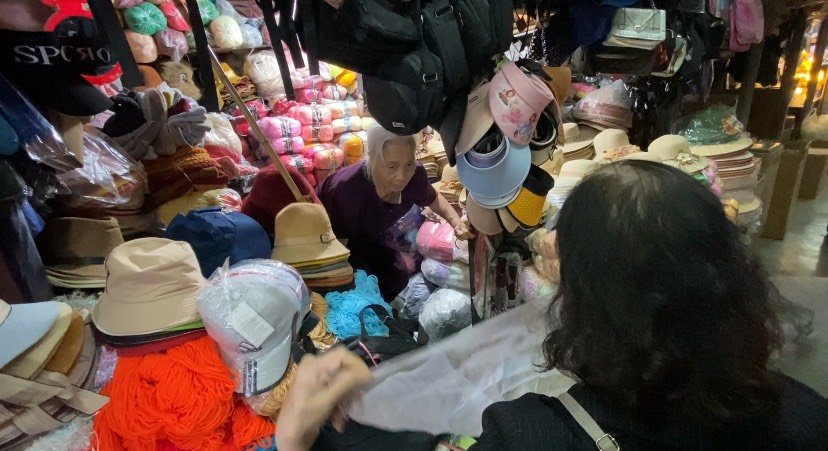
In traditional markets, many people are self-employed, have no income, or are elderly without pensions.
Mrs. Lam said she does not want to depend on her children. At her old age, she tries to do whatever she can.
Mr. Do Van Sinh (65 years old, a trader at Mo market) said that although he has a pension, his income is low and his children cannot rely on him, so he decided to register a stall to sell at the market.
"I'm retired but still able to work. I thought selling things at the market would make me some money, but unexpectedly the market is so deserted. I don't know how long I can keep this up," Mr. Sinh shared.
However, Mr. Sinh also confided that besides sales, his health is not qualified to do other jobs.
"My friends also advised me to work as a security guard, but my bones and joints are not good and my eyesight is poor, so I almost do not meet the requirements of security companies," Mr. Sinh shared. For him, working in the market is the last hope.
Source


![[Photo] Prime Minister Pham Minh Chinh chairs a meeting on the implementation of the Lao Cai-Hanoi-Hai Phong railway project.](https://vphoto.vietnam.vn/thumb/1200x675/vietnam/resource/IMAGE/2025/5/20/0fa4c9864f63456ebc0eb504c09c7e26)





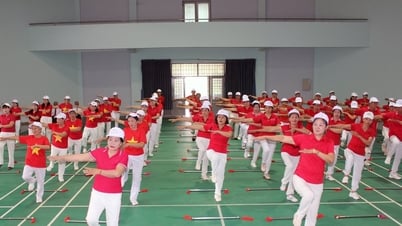
































































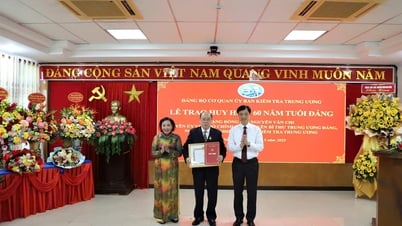



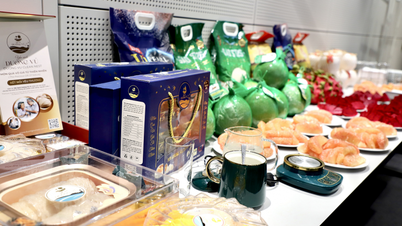



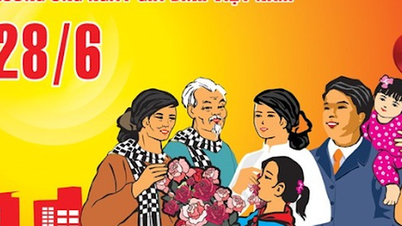























Comment (0)